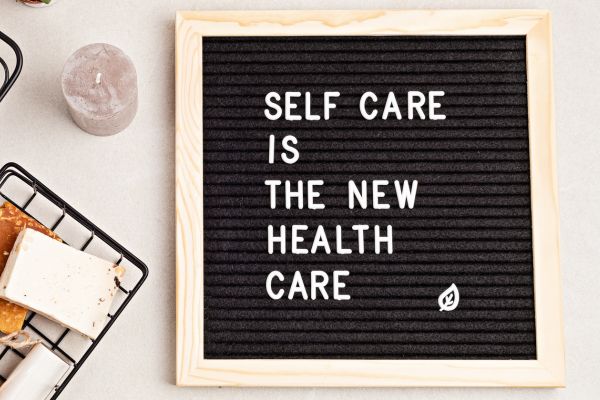
Are you a caregiver for a family member or friend? Being a caregiver for another can be stressful and impact your own health and well-being. You can’t give your 100% support to another unless you’re taken care of too.
When you’re on an airplane, the flight staff says to put your own mask on before assisting others. This “rule” applies to home healthcare, too: it’s essential that you’re taking care of yourself first, or you won’t have the physical or mental strength to care for another.
In this article, we’ll share some information about what it’s like to be a caregiver for a friend or family member and helpful tips to ensure you’re taking care of yourself too.
What does an unpaid in-home caregiver look like?
Whether by choice or necessity, you may be the in-home caregiver for a loved one. You may be one of over 7.8 million Canadians providing full or part-time care for another person. Did you know that:
- Over 96% of those caregivers are unpaid
- They work an average of 38 hours of care per week.
- They accumulate over 5.7 billion hours per year of unpaid caregiving.
- Half of the caregivers care for a spouse
- A third of caregivers are adult children caring for their parents.
While you’re doing admirable work as a caregiver, it can take a substantial physical, mental, and financial toll on you. One report found that 7/10 caregivers reported feeling stressed about their current situation. These are often people caring for individuals who need greater assistance with personal care, who have communication or behavioural struggles, and who live with the person they’re caring for.
How to recognize stress in caregivers
If you are a caregiver, it’s responsible to look for these signs of stress in yourself or ask a capable loved one to watch for these signs and symptoms of stress:
- Trouble concentrating
- Feelings of anxiety or irritability
- Trouble sleeping
- Feelings of exhaustion, despite adequate rest
- A weakened immune system
- Loss of interest in personal needs, desires, and pastimes
- Increased feelings of resentment towards the care recipient, family or friends
- Loss of satisfaction of being a caregiver
- Feeling helpless, hopeless, and isolated
How to ensure your health and wellbeing are supported
Don’t forget that if you’re feeling stressed or burnt out, that will affect the quality of care you can provide your loved one and your relationship with others in your life too.
To remind you to take care of yourself, too, here are some tips for your health and well-being:
Join a support group
Finding others who understand your stresses can be helpful. Look for a caregiver support group who you can meet regularly and contact members if you need extra support. They are likely to feel like you and can offer advice, friendship, or help you find other resources for help when you need it.
Prioritize yourself when you’re “off the clock.”
When you have a break, like when you bring in another caregiver to support your loved one, or they’re taking a nap and don’t need your immediate assistance, do something for yourself. It might be tempting if your loved one is napping to get ahead on some household chores before they wake, but make sure you do something for yourself first. You might enjoy catching up on a Netflix show, taking a short walk, eating a healthy snack, exercising, or chatting with a friend. Time for yourself is essential to re-energize your mind, body, and soul.
Establish personal routines (and boundaries)
Routines make it easier to stick with your health habits. When you’re not being a caregiver, create healthy self-care routines such as exercise, nutrition, or recreational activities. For example, you might have a morning routine where you do yoga stretches and write in a journal before waking up your loved one. You might hire another caregiver for Friday nights so you can go on a date night with your spouse or a friend.
As much as possible, set boundaries so your family knows this is your time to decompress and focus on yourself, not your caregiving duties. This may require having other family members help with caregiving shifts or hiring a compassionate caregiving company to give you breaks.
Talk with a counsellor or therapist
Before your mental health deteriorates, consider regular chats with a counsellor or therapist. They can be a sounding board to vent and help remind you to maintain a positive life balance.
Consider working with a life coach who specializes in caregiver support. Life coaches are less clinical and often have a gentler approach. They can guide you through activities and prompts for increased self-awareness and discovery to achieve the life balance you need for your health and well-being.
Delegate tasks
Just because you’re the primary caregiver for another doesn’t mean you have to do everything. Where possible, solicit the help of family, friends, or neighbours. Here are some easy tasks you can delegate:
- Cutting the lawn
- Picking up the mail
- Grocery shopping
- Home repairs
- Nutrition and meal planning
- Driving to appointments
These can be delegated or outsourced to friends and family (like grocery shopping, home repairs, and driving to appointments), or you could hire a professional company to help (like a yard maintenance company or in-home caregiver company to support medical, domestic, and companionship needs).
Getting help can be YOUR lifesaver
We can’t emphasize enough that you don’t have to do it solo, even if you’re the sole caregiver. By getting help for yourself and your loved one, you can ensure your loved one’s needs and your own are met.
This is where in-home caregiving support from Hero Home Care can be valuable. We provide peace of mind so you can take a much-needed break, knowing someone is at home caring for your loved one’s needs. We can help you develop a regular schedule so your loved one knows who will care for them at any given time.
Often, we have clients who have us stay with their loved ones overnight so they can get a rest. We also support them when you’re on vacation or during an extended absence. You can also ask us to come in daily for a few hours to help with healthy meal prep or administering medication.
Learn more about the personalized in-home care we can provide, and call us for a complimentary consultation and assessment of your needs.
